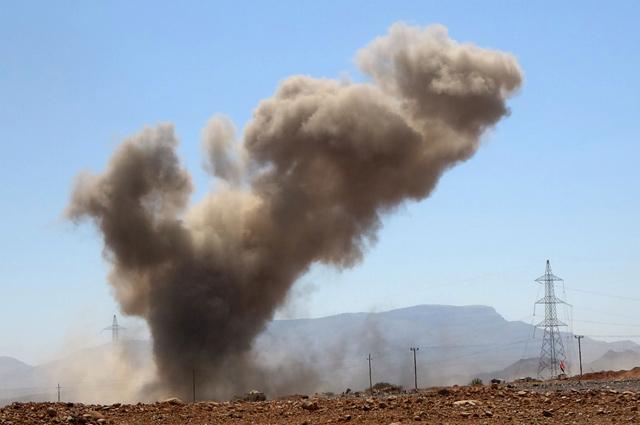- International News
- Tue-2020-11-24 | 03:33 pm

Nayrouz News Agency :
Yemen’s Iran-backed Houthi rebels said they launched a missile that struck a Saudi Aramco oil distribution facility in the Red Sea city of Jeddah on Monday.
The Houthis have stepped up attacks on neighbouring Saudi Arabia, mainly targeting southern provinces along their shared border, but Jeddah lies some 600 kilometres from the frontier.
Yahya Sarie, spokesman for the Houthis’ armed wing, said its "missile force” targeted a distribution station belonging to energy giant Saudi Aramco.
"The Quds-2 type hit its target accurately and Saudi ambulances and firefighting vehicles rushed to the targeted location,” he said.
The claim was made after a weekend summit of G-20 nations which Saudi hosted in a virtual format, and shortly after the departure of US Secretary of State Mike Pompeo who visited the planned megacity of NEOM on Sunday.
Aramco only said it would respond to queries about the claim "at the earliest opportunity”, and there was no official response from Saudi authorities.
But TankerTrackers, an oil shipping monitoring website, cited satellite photos from Planet Labs as showing that a fuel storage tank at the North Jeddah Bulk Plant was "struck and quickly extinguished”.
Sarie said the attack was carried out in retaliation for the "continuation of the aggression and the siege on the Yemeni people” by Saudi Arabia which leads a military coalition that supports Yemen’s internationally recognised government.
He warned foreign companies operating in Saudi Arabia "to avoid vital installations” which could be involved in ongoing operations.
Saudi Arabia has been targeted with dozens of ballistic missile and drone attacks since the start of last year, including a devastating strike on Aramco’s facilities in the country’s east which temporarily knocked out half the kingdom’s crude output.
The strike was claimed by the Houthis, but the United States said it involved cruise missiles from Iran.
Yemen has been locked in conflict since the Houthis took control of the capital Sanaa in 2014 and went on to seize much of the north.
Tens of thousands of people, mostly civilians, have been killed and millions displaced in what the United Nations has called the world’s worst humanitarian disaster.













